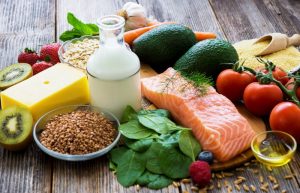 Any dentist will tell you how important it is to maintain a strict oral care routine in between bi-annual checkups and cleanings. However, if the dentist doesn’t also ask about your diet or how much sugar you consume on a regular basis, they are missing half of the equation. Diet and sugar matter when it comes to oral health as it can affect how well your body is able to fight off bacteria and plaque. Today, a dentist breaks down how this phenomenon works in more detail, so you can reduce your risk of dental problems moving forward.
Any dentist will tell you how important it is to maintain a strict oral care routine in between bi-annual checkups and cleanings. However, if the dentist doesn’t also ask about your diet or how much sugar you consume on a regular basis, they are missing half of the equation. Diet and sugar matter when it comes to oral health as it can affect how well your body is able to fight off bacteria and plaque. Today, a dentist breaks down how this phenomenon works in more detail, so you can reduce your risk of dental problems moving forward.
Why Sugar is the Main Culprit
Sugar is responsible for the majority of the plaque buildup in your mouth because oral bacteria loves to consume it. When bacteria breaks down sugar, it does more than simply grow and multiply in all of your mouth’s surfaces. It also leaves behind sticky plaque acids that collect and form on the surface of teeth and the gums. These acids can attach to gum tissue and tooth enamel, which then leads to inflammation and decay/cavities. If you ever notice blood from your gums after flossing or brushing, it is because plaque has accessed the deep pockets of your mouth and is attacking your most vulnerable oral structures.
Keep in mind that the amount of time your mouth remains exposed to sugar is more harmful than simply consuming a lot of sugar in one sitting. That means eating candy throughout your entire day, rather than eating a whole bag of candies at once has the potential to do more damage because it keeps your mouth bathed in sugar for longer.
Diet and How it Connects to Oral Health
With all that said, sugar is not the only culprit when it comes to how your diet affects your oral health. Eating starches can also lead to more plaque acids in your mouth, as oral bacteria love to consume it just as much as sugar. Furthermore, if you eat foods or drink beverages that cause dry mouth (such as coffee, soda, potato chips, toasted bread, bananas, alcohol, etc.), it can create an environment that promotes plaque production even more.
Thankfully, there are simple ways to fight back.
How Improving Your Diet Can Help
First of all, it’s crucial that you drink enough water throughout the day. Not only is consistent hydration good for the body overall, but it keeps saliva production high. The more saliva you produce, the more effective your mouth becomes at digesting food. If food particles are left in the mouth for too long, it can create a breeding ground for bacteria and plaque development.
Furthermore, the best foods and beverages you can consume for better oral health include:
- Fruits and vegetables
- Lean sources of proteins (i.e. skinless poultry, fish, dry beans, peas and other legumes)
- Low-fat and fat-free dairy foods
Need help building a better diet for your oral health? Schedule an appointment with a dentist today to learn how your current diet could be improved moving forward!
About the Author
Dr. Benjamin Hornstein takes whole-body wellness into account for every single one of his patients. Oral health is important, but since overall health is directly tied to oral health, diet makes a big difference in keeping teeth and gum tissue healthy. If you’re looking for a holistic dentist that doesn’t take your systemic health for granted, feel free to schedule an appointment through his website!
